Since the early 1990s Adam Curtis has made a number of serial documentaries and films for the BBC using a playful mix of journalistic reportage and a wide range of avant-garde filmmaking techniques. The films are linked through their interest in using and reassembling the fragments of the past—recorded on film and video―to try and make sense of the chaotic events of the present. I first met Adam Curtis at the Manchester International Festival thanks to Alex Poots, and while Curtis himself is not an artist, many artists over the last decade have become increasingly interested in how his films break down the divide between art and modern political reportage, opening up a dialogue between the two.
This multi-part interview with Adam Curtis began in London last December, and is the most recent in a series of conversations published by e-flux journal that have included Raoul Vaneigem, Julian Assange, Toni Negri, and others, and I am pleased to present it in the coming issues the journal in conjunction with a solo exhibition I have curated of Curtis’s films from 1989 to the present day. The exhibition is designed by Liam Gillick, and will be on view at e-flux in New York from February 11–April 14, 2012.
—Hans Ulrich Obrist
HUO: To begin with the beginning, I was wondering what brought you into television. Did it start with a kind of awakening or epiphany, or was it more of a gradual process?
AC: I just fell into it after university. When I was a student, I didn’t really know what I wanted to do, but I knew that politics and power were interesting. I didn’t mind the academy as a student, because you made friends and you had time and space to explore things. But after continuing up at Oxford, doing a PhD and starting to teach politics, I very quickly realized that I hated academia. To get a PhD, you have to find something that no one else has done, possess it, and then build a ring fence of quotations and references around it to protect it. In the 1980s, the academic world was facing uncertainty and because of that becoming increasingly cynical and corrupted. So I decided to leave, but without knowing what to do next. Someone suggested I apply to the BBC, so I did, at random, and they gave me a job. I made a very silly film for one of the BBC training courses, comparing designer clothes in pop music videos to the design of weapons—I literally got a designer to discuss fashion with a weapons designer who made weapons that killed people. I was being silly, and the man who was running the training course thought it was so ridiculous that he sent me to work on the silliest program in the whole world, which was called That’s Life! with a woman called Esther Rantzen. And I ended up making films about talking dogs. So there wasn’t a moment of epiphany, but it was more like a strange drug-induced experience of lurching from one extreme to another, from teaching politics at Oxford and getting bored to making films about talking dogs and dogs that could sing. But I loved it, I just thought it was simply wonderful. My mother hated it. She thought I should be a serious academic. I had done very well at Oxford, so all the academic people there thought I had gone completely mad, leaving to make films about talking dogs.


HUO: And before that happened, what were your inspirations as a political scientist? What was your focus?
AC: All I knew was what I’d studied in human sciences, which included genetics, advanced statistical methods, but also politics. I had worked out that that we were beginning to live in an increasingly complicated age where power worked in all sorts of ways other than how it was understood by political journalists, but I had no way of articulating that. I entered academia at the moment when the way power works in the modern world was basically becoming much wider and far more intricate. It flowed through culture and consumerism and public relations. It flowed through scientific ideas, and how those scientific ideas were then taken up and turned into technocratic dreams—and dystopias. It flowed through modern ideas drawn from psychotherapy and how to express yourself as an individual. I instinctively recognized that this had happened, but I had no idea how to deal with it, because academia hadn’t realized it yet. So in a way I turned my back on academia and went into television, went to the other extreme. I learned how to do trash. A few years later I worked out that one of the the ways you could tell stories about the workings of modern political power, in ways that political journalists didn’t understand, is through bolting it together with trash techniques. I put jokes in, silliness, self-referential bits about modern culture, and storytelling and emotion—all things I learned through doing trash television.
HUO: Who were your heroes around this time?
AC: All my heroes come from literature, not from film. My literary hero is John Dos Passos. Visually, I have heroes, people with really good eyes—like Erik Durschmied, who was a BBC cameraman who worked mainly in the 1960s and ‘70s.
HUO: Is he still around?
AC: I think so, but I’ve never met him and don’t know very much about him. But he had the most beautiful eye ever. There was a fashion in television in the 1980s, where everyone would use this completely flat composition. The high point of it was in those films like The Draughtsman’s Contract. I hated it. It was like graphic design, completely framed, composed, and controlling. What Erik Durschmied did was the opposite—with his eye you could have a shape in the corner at an angle, and it would be completely dynamic and odd, just capturing the moment as you experience it without trying to control it. Visually, he’s my hero. I stumbled upon him by complete accident. There’s a film in the BBC archives called America: Democracy on Trial. It’s a fascinating film. It was produced in 1968 by a man called James Mossman, who is another of my heroes—he was a current affairs reporter who’d been fired for confronting the Prime Minister live on television in 1968, and went off and made this documentary. It’s shot by Erik Durschmied with no commentary—it’s just about life in San Francisco at a time when America was beginning to tear itself apart. It’s not agitprop—just a beautifully made film about how the confusions about power are flowing through ordinary people’s lives. Visually, it beats the hell out of a lot of the self-conscious vérité approaches documentary filmmakers were using at the time. You can see this kind of eye reemerging in the ‘70s with people like Fassbinder. He understood it. It’s an ability to compose a moment through how something is experienced and translate it into cinema.
HUO: Do you think Fassbinder was aware of Durschmied?
AC: I doubt it. It’s more of a sensibility.
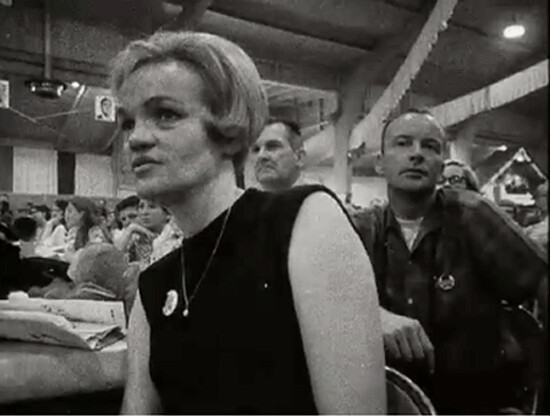

HUO: It’s an morphogenetic field, as Rupert Sheldrake would say.
AC: Exactly—the moods move through society. It’s something we’re often unaware of these days because we’re so obsessed by our own experience, that the mood we feel is probably common to a lot of other people at this point in time. I would refer to sociologists like Durkheim, who, back in the late nineteenth century, told us something that we forget these days, which is that we’re actually very similar to each other. And a lot of what we think comes from inside of us actually comes from outside.
HUO: What do you think of someone like James Lovelock, the scientist who developed the Gaia Hypothesis?
AC: Well, he’s the absolute opposite. He was a NASA engineer, and his dark vision is an engineer’s vision. It’s a machine vision of the world. It’s not about biology. It’s a self-correcting machine that doesn’t care for us mere humans. It’s actually a piece of science fiction for a generation of middle-class liberals who know that their project failed. I mean, this is the other thing we haven’t talked about, which I’ve never really made a film about, because I don’t know how to do it. By the early ‘70s, the postwar middle classes and the early hippies in this country who had originally thought that you really could change the world for the better, become totally pessimistic, almost apocalyptic. Looking at all this, it’s always puzzled me that one of the most privileged, pampered generations in the history of the world can go from optimism to pessimism so quickly. And I still haven’t worked out quite why they’ve done it. Someone like Lovelock produces beautiful pieces of science fiction that both express and seem to scientifically justify that shift towards a dark pessimism that says we don’t even matter as human beings. We’re nothing. It’s as if they became depressed. I think there is some truth in the argument that they’re a generation of total narcissists, and now that they are growing old and facing death, they can’t even conceive of their own death. Instead, they project their own coming death onto the world. They say, I’m not going to die, it’s the world that’s going to die.
HUO: And this is an earlier generation.
AC: Yes, it’s the generation before mine. They’re basically heroes of their time, a time that believed in self-expression as almost a public duty. They are individualists who believe that self-expression is the most important thing. This means that what you feel inside yourself, inside you head, is the most important thing in the world. But if the world is all in your head, then when you die, the world dies with you—it ceases to exist, because you can’t express yourself. Because narcissists don’t have anything beyond themselves, apart from their children, which is why these people are obsessed with their children—they don’t have a trade union or a political party or religion. They know these people will go on beyond their death, but they won’t. On the other hand, people like me who were brought up by old socialists, although I’m not a socialist, what it did instill in me is a strong belief that you work towards something that will go on beyond your own death. I mean, that’s really what you’re put on this world to do.
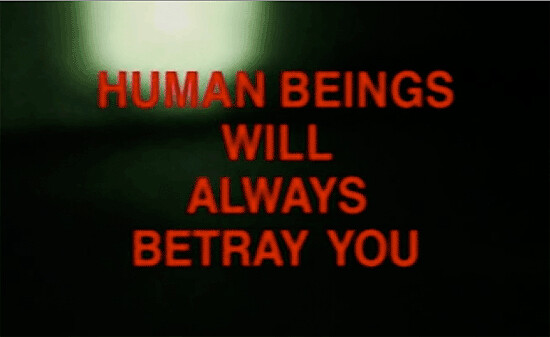

HUO: When we met for the first time we talked a lot about John Dos Passos, and I wonder if you can tell me a bit more about his influence and the influence of his USA Trilogy.
AC: It’s where I got it all from. I read it when I was about 12. It was sitting on my father’s bookshelf and it was one of those things I just went and read.
HUO: What did your father do?
AC: He was a documentary cameraman for quite a famous director called Humphrey Jennings, who is one of the sort of greats.
HUO: So you grew up in the cinema world?
AC: Not really. I basically came out of a sort of left-wing political family. My grandfather used to stand for Parliament as a Socialist in seats that he would never win. It was all, you know, red flag stuff. I then became very suspicious of the left as I grew up because they seemed to me to retreat into a dark, limited pessimism. But what I did take from that socialist culture was an interest in the relationship between the dreams of individuals and what the great currents of society and history do to those dreams. What’s fascinating about Dos Passos is that, in his writing, he prefigures everything. Not only does he have the newsreel sections where he collages newsreels, and these individual stories of endurance, he also had this thing called the camera eye, which is literally about experience, I think. It’s not only the collage of what you see on the newsreels, but is something that actually tries to evoke a way of sensing similar to wandering along a street and having a mixture of feelings, thoughts from the past, visual things you’re picking up, just stuff that makes no sense, all then turned into stories later on. And I think that’s the great—I’m going to be pretentious here—the great dialectic of our time, which is between individual experience and how those fragments get turned into stories, both by individuals themselves, and then, by the those in power above them. And then there is what gets lost in the process, which is what I think Dos Passos is all about. It’s like when you live through an experience, you have no idea what it means. It’s only later, when you go home, that you reassemble those fragments into a story. And that’s what individuals do, and it’s what societies do. It’s what the great novelists of the nineteenth century, like Tolstoy, wrote about. They wrote about that tension between how an individual tells the story of an event themselves, out of fragments, and how society then does it. That’s what the great battle scene in War and Peace is all about. You could see how all my expressions come from literature. Far more than visual art or even movies.
HUO: Balzac was important for you as well, wasn’t he?
AC: That’s the other novelist that inspired me. I just think he’s absolutely wonderful. He was writing at a time very similar to our own. It’s very interesting how all these novelists in the twentieth century look back twenty years. Balzac is doing something similar—he starts writing in the 1830s, and it’s a time very like ours. Following a period of revolutionary change, a new middle class has emerged, and they want peace and quiet. It was a deeply conservative age, deeply hypocritical, full of corruption, with economists telling you that everything was going fine, and with no visions of the future. In the middle of all of this Balzac wrote these incredibly inspiring books, which took that hypocrisy and the reality of life and transformed it into a vision of a universe that you almost want to go and inhabit. I was rereading the beginning of Le Père Goriot just the other day, and the story is all set in a single building where loads of people live. Very simple stories emerge out of this, with these characters like Vautrin, the mysterious master criminal who is also a policeman. It takes the greed and the true complexity of what human beings are like, and it makes a melodrama that transcends the world in which it’s set. Actually, one of my great dreams is to be able to make, on television, some sort of factual equivalent of what Balzac does. I don’t want to invent fictional characters, because I like real life. I’m a journalist. And I love stories. But I would love to do the equivalent of what Balzac does, but for real, with an emotional universe of characters, with an ongoing flow to it, and through very simple stories. And it takes you out of yourself. You imagine yourself living in that world. It’s true melodrama, but in a really good way.
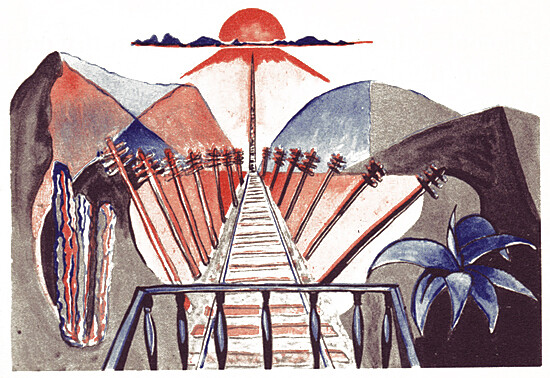

HUO: Are there other novelists who inspire you? How about Proust?
AC: Well, in a way, I think he’s part of the problem, which is that obsession with your own experience. What I found fascinating about people like Dos Passos and Balzac is that they somehow managed to understand and accept individuals’s experiences of the world, yet combine that with a grand pulling back and seeing those individuals and their feelings as also part of a larger social world. What I love about them is all the voices of the individual characters are different. And also, they allow you to invent the characters in your mind. What then happens with Proust is you get the rise of the one voice, the inner voice, which dominates literature today.
HUO: I’ve just been to Korea last week, and while I was there I met this extraordinary Korean writer who’s now in his early eighties named Ko Un. He wrote a book called Ten Thousand Lives, in which he basically wrote a little paragraph about every single human being he’s encountered in his life. And he’s come to the conclusion that he’s met over 10,000 people. It’s quite related to what you’re talking about.
AC: That’s what I think is waiting to be invented, the sort of grand novels of our time, that feel more related. I mean, the problem with Dos Passos and with Balzac is they’re now outside our sensibility. I admire them, but now we are waiting for someone to do something like that but for today—that captures our world in a way that both reflects the modern sensibility, but also makes you look at it as a “thing,” a product of its time.
HUO: But maybe that twenty-first-century novel is made with moving images.
AC: Yes. Well, there is an argument that all of television is that novel. And it is a novel that started being written somewhere around 1948, and it’s still going on. I’m not sure about that, because you could say that about anything. You could say, well, the whole world is a novel. The point about people like Balzac is they understood the sensibility of their age, which was the reality of the new middle-class sensibility. Now, there’s a new sensibility in our age that we haven’t quite understood. And no one’s distilled our world into that.
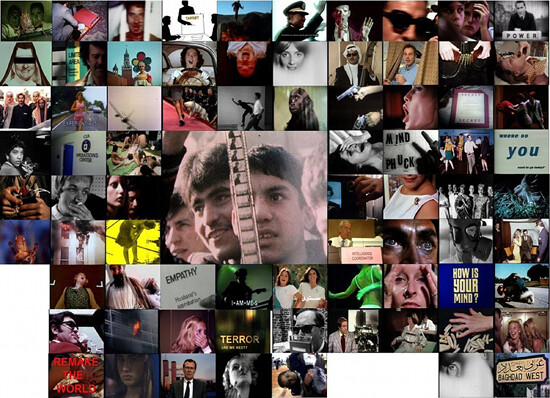

HUO: And how would you describe that new sensibility?
AC: Right. I think the new sensibility is beginning to shape itself out of the limitations of just experiencing things for yourself. But that’s not going to go away, that desire. The desire of the individual is still at the center of our society at the moment. If you go into a bar tonight, and you listen to the conversations, you will hear men and women describing to each other how they feel about someone else, or how someone else they know feels about someone else. Inner feelings are everything. They’re talking like a novelist’s description. They’re saying, “well, what he felt was that she crushed him somehow. And therefore, it was sort of a terrible destructive thing that she was doing to him, because she was, like, blanking him off.” What you hear will be like that. That’s like a novelist describing someone from inside their head. That fixation on the primacy of individual experience and feeling is not going to go away. But we’re beginning to realize two things: first, that this individualism is limited, and second, that when things get tough economically, socially, and politically, and you are on your own, you feel isolated, and you feel weak. And actually, there are other collective ways of experiencing things, and thus acting, which need to be recaptured. It doesn’t mean finding this sense of being part of something will mean throwing away our individualism. But this other way of being, this sense of being part of something, of losing yourself in something grander than you—we’re frightened of that, because the last time we did this collective thing, in the 1930s, it led to horror and disaster. And I do think that actually part of the individualism of our age is not just a reflection of the rise of consumer capitalism. I also think it was part of a very conscious political project after the second world war that deliberately tried to push people away from becoming collective. Let’s emphasize individualism instead. There was a fascinating American art exhibition in the 1950s called The Family of Man. It wasn’t one of these CIA-funded things. It genuinely was a very good idea, and it was photographs of lots of individuals from around the world. It wasn’t people in groups, just individuals. The exhibition is saying we are all part of the world, but essentially and most importantly every person is an individual. Now you can say—well that’s just capitalist ideology, and you’d be right. But I also think there was something more there, a kind of idealism to try and prevent the horrors that European nationalism had led to in the 1930s and 40s.
HUO: The exhibition Edward Steichen curated at MoMA in 1955, it then toured to thirty-eight countries.
AC: That’s right. It was really fascinating for saying that we’re all individuals, and that would be part of the way to stop that terrible, I suppose, totalitarian collectivization that led to horror and political mayhem. Now we seem to want to rediscover that collectivity, but we’re still frightened of it. And I think that’s going to lead to very, very interesting areas.
HUO: That seems to tie in with utopia.
AC:Yes, but I think the way forward is somehow to make it emotional, to rediscover the idea of transcending yourself and joining together with other people. If a novelist is going to come along and write the grand novel of our time, I think the sensibility will have to deal with the interaction between the desire of the individual to feel and experience everything themselves, and how that desire can also transcend the immediacy of the individual to become something else, a kind of shared experience. In a way, that Sopranos series explored it through this tension between a deep-seated American fantasy of individualism and, well, basically being part of a criminal fraternity at the same time. I think the mood of the moment has to do with a sense that if you’re going to the woods on your own, it’s scary, and you feel weak. But if you go with your friends, it’s fun. A lot of politics hasn’t understood this. And the trouble with it is that it actually leaves a gap for the return of totalitarian politicians—and I mean in America more than here in the UK. Someone pointed out the other day that the Republican Party is still captive to the oil industry, while the Democratic Party, even under Obama, is totally captive to Wall Street. So there is this great gap for a politician to come in and start talking about how people are afraid and need to come together and protect themselves.
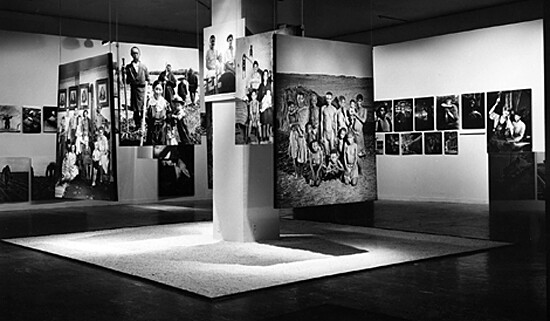

HUO: Last week I asked Eric Hobsbawm whether he sees analogies between our current moment and the 1930s, and he said he didn’t see them because he doesn’t see fascism reemerging at the moment.
AC: No, but you can get a new populism emerging. You’re not going to get fascism in the sense of the 1930s. And it’s not going to come from nationalism, which is really where fascism originated. But the sense in America that you are isolated individuals, and that large, vested interests in Wall Street are using the system to suit their own needs, and leaving you isolated, scared, and alone—I can see a populist demagogue emerging from this, not so much like Hitler, but like in the 1930s they also had people like Huey Long and Father Coughlin, who used radio to gather masses of people together—and both blended left and right-wing ideas. I’m not saying that it’s like fascism. What I’m saying is that the things we’ve forgotten will reemerge. And there will be a tension between that, but also, that idea is also highly romantic. I mean, I thought Lars von Trier was very unfairly criticized for saying he understood Hitler with his last film, Melancholia, because it’s basically an exploration of German Romanticism. It’s really, really interesting. And what he was saying—well, I think what he meant when he said he understood Hitler—was that he understood the roots of where fascism came from—that deep romanticism. The film is about depression. It’s about the end of the world in your head, but coinciding with the actual end of the world, but also the relationship between individual experience and being part of something greater. In a way, he’s ahead of the game—that’s what novelists should be writing about. John Dos Passos saw a time when the individual was a new thing, and he saw the tension between the individual and society. What I think might happen next will be the very opposite, with individualism starting to feel old and tarnished, but without going away. Yet there’s something else waiting to be rediscovered, some new thing that will fuse with that individualism—that will empower individuals and make them stronger collectively, yet not mean that they have to surrender their feelings of uniqueness as individuals. Eric Hobsbawm is right that it won’t be fascism. But it’s going to be something else, beyond the individual. It’s going to borrow from religion. But it won’t be religion again.
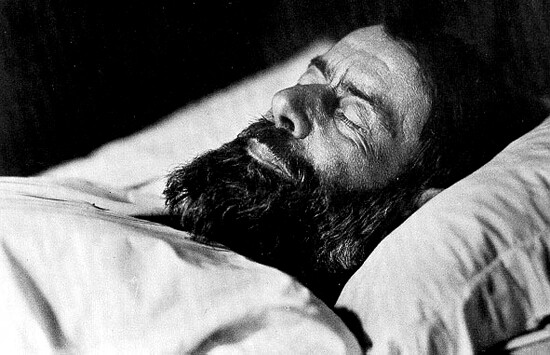

HUO: One of my favorite interviews of yours was with Errol Morris, and in it you say, “The person I love best in the whole world is a sociologist from the late nineteenth century named Max Weber, who believed that ideas have consequences. People have experiences out of which they form ideas. And those ideas have an effect on the world.” So I am curious to know more about how you came to Max Weber.
AC: Well, a lot of people go on about how I’m a leftist, but I’m not really, because I believe that ideas have consequences. And why I like people like Weber is because they are challenging what I see as that crude left-wing vulgar Marxism that says that everything happens because of economic forces within society, that we are just surfing, our ideas are just expressions—froth on the deep currents of history, which is really driven by economics. I’ve never believed that. Of course, economic forces have a great effect on us. But actually, people’s ideas have enormous consequences. And to be honest, if you had to reduce what I do, I spend my whole time just looking at how ideas have consequences, not necessarily what the promoters of them intended, because I think that’s a really big thing in our time. I came into writing and describing and filming the world at the very moment that those old left-wing certainties were beginning to collapse, certainties that said somehow progress and modernity were on a inevitable path towards a particular destination in history. But it was also equally obvious to me the right-wing reaction—where you just bring a market force in to create a form of stability that goes nowhere—was equally not going to work. And I became interested in examining how ideas have led us to this position in ways that those who had the ideas didn’t really intend. People like Weber who were, in a sense, conservative sociologists of the late nineteenth century were looking at the consequences of rationality. At how scientific ideas were used by those in power in modern society—and what the consequences then were. I think this is still incredibly important to look at today. And above all Weber’s writings about bureaucracy. One of things I’m fascinated by at the moment is the rise of managerial theory. It works in absurd, comic ways. It leads to the police being told that they have a certain quota of criminals they have to catch, so if they can’t catch them, they go and make them up. These are very comic, silly things that I would have done on a program like That’s Life!, but they’re also expressions of something that Weber wrote about back in nineteenth century which he called the “iron cage,” about how rationality, when applied to social situations to try and control and manage societies, would often lead to absurd outcomes. Now, my brain can encompass both those things, the sort of silly “talking dogs” ideas of what bureaucracy leads to, but also intellectual theories about it. And I think the connections between them are very, very interesting. That’s what inspires me.
HUO: To make these very unexpected junctions.
AC: Right, because it makes people look again at it if I can say, look, here, I’ve got this very funny story. In The Century of the Self, I tell a story about how a group of nuns in California were sent into an encounter group to try and help them express their feelings and how it created complete chaos and led to the downfall of a whole nunnery, with a group of lesbian nuns emerging out of it. It’s a terribly funny story. But it’s also a very interesting example of what happens when individualism challenges collective ideas. I have this theory that you can take very complicated ideas, which are at the root of our present world, simplify them, make them entertaining and funny, yet still keep the essence of what they’re saying. That’s the fundamental thing I believe in. And I loathe the opposite view that you can’t do this without being complicated and obscure and talking as though to only a small, elite group. So I would read someone like Max Weber and think to myself, well, actually, that’s similar to a funny story I found last week about targets and hospitals. I can put the two together.
HUO: There was a moment with the whole generation of the 60s—with the Nouvelle Vague and the Nouveau Roman—where, with something like early Godard or Robbe-Grillet it seemed possible to make something, at the same time, highly experimental and also mainstream, or elite and popular. Was early Godard important for you?
AC: Not really. I say that it’s more about taking things that would normally be seen as elitist and presenting them in such a way that ordinary people like me would appreciate and understand, but without losing the imaginative jump they’re making. I love the clever jumps that a lot of avant-garde art makes, but I also think that you can present that sort of cleverness in a way that allows everyone to get it and enjoy it, not just elites. It’s a sort of populism—why can’t ordinary people get the cleverness, because then we can all be elites? It’s that argument about socialism which says there’s nothing wrong with having champagne. I want everyone to have champagne. I want everyone to enjoy the clever things that people do. What I loathe are those who try and keep them secret, and use them as a way of proving that they’re clever. A lot of art’s become very reactionary, even in journalism and in novels now, what may appear to be experimental techniques are not looking forward.
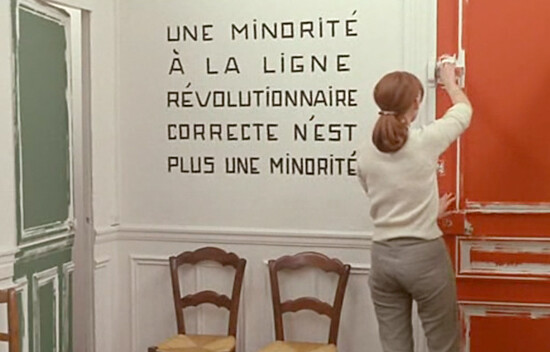

HUO: You’ve said in a recent interview that we are “living in a conservative age, and it produces cowardly art.”
AC: Well, I think that a lot of art has been captured by, again, academic stuff. I find it fascinating these days that you need to know the references behind a lot of art in order to understand it. Someone will, say, put something on a wall in a gallery and to “get it” you have to know that that the image is of a place where something extraordinary or terrible happened. I’m not saying that this is wrong—but it’s also not very dissimilar from an academic putting a footnote in a book. A lot of art is absolutely surrounded by footnotes at the moment.
HUO: The artist Paul Chan says that in art, and in general, we should just stop quoting. Would you agree?
AC: Yes, he’s absolutely right, because my working theory is that we live in a managerial age, which doesn’t want to look to the future. It just wants to manage the present. A lot of art has become a way of looking back at the last sixty years of the modernist project, which we feel has failed. It’s almost like a lost world, and we are cataloging it, quoting it, reconfiguring it, filing it away into sliding drawers as though we were bureaucrats with no idea what any of it means. They’ve got nothing to say about it except that they know it didn’t work. It’s not moving onwards—we’re just like academic archaeologists. It’s terribly, terribly conservative and static, but maybe that’s not a bad thing. Maybe in a reactionary, conservative age, that’s what art finds itself doing. The problem is that it pretends to be experimental and forward-looking. But to be honest, in some ways I’m just as guilty. What I do is not so different—using all sorts of fragments from the past to examine the present. Maybe this is simply the iron cage of our time—we’re like archaeologists going back into the recent past, continually refiguring it, surrounding it with quotations. It’s a terrible, terrible prison, but we don’t know how to break out of it.
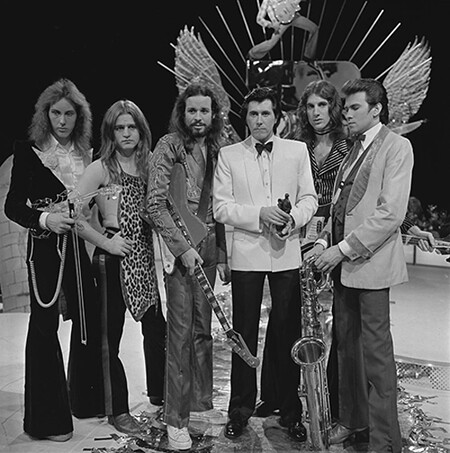

HUO: But then, I think it was Erwin Panofsky, the great art historian, who said in the twentieth century that we can invent the future out of fragments of the past.
AC: Yes. But I actually see that most people are not doing that. They’re using the past to reinforce the present. It’s as if they’re shoring it up. I recently read an interview with a twenty-year-old musician who was saying how much he admired Roxy Music. Well, Roxy Music had their heyday in the early 1970s and it was one of the earlier examples in pop culture of reworking the past and re-cataloging it in a new way. But now Roxy Music themselves are being reworked and recataloged forty years later—so you see, you’re going round and round in these continual circles. Its a bit odd, but maybe that’s the only option available at the moment. Now, if I was going to be really ruthless, I would say that just as in the early 1980s, in the Soviet Union, not only was their politics trapped, but their culture was trapped. Russians called these last years of Brezhnev the years of stagnation. And I sort of wonder whether we are at the same stage now—our own years of stagnation, with an elite desperately trying to shore up a technocratic, economic system with an increasing number of contradictions, while no one can imagine an alternative. In response to that inability to see anything else, everything, including a lot of modern culture—music, TV, and avant-garde art—is being used to shore up the present, reconfigure the past to somehow give a foundation to the present that can’t imagine another kind of future. No one can see their way past the sort of financial version of the free market, and the culture reflects that. I do think we’re in the years of stagnation.
→ Continued at “In Conversation with Adam Curtis, Part II.”
Category
Subject
This interview is published on the occasion of Adam Curtis’s first exhibition in his career as a BBC documentary filmmaker, on view at e-flux in New York from February 11–April 14, 2012.
